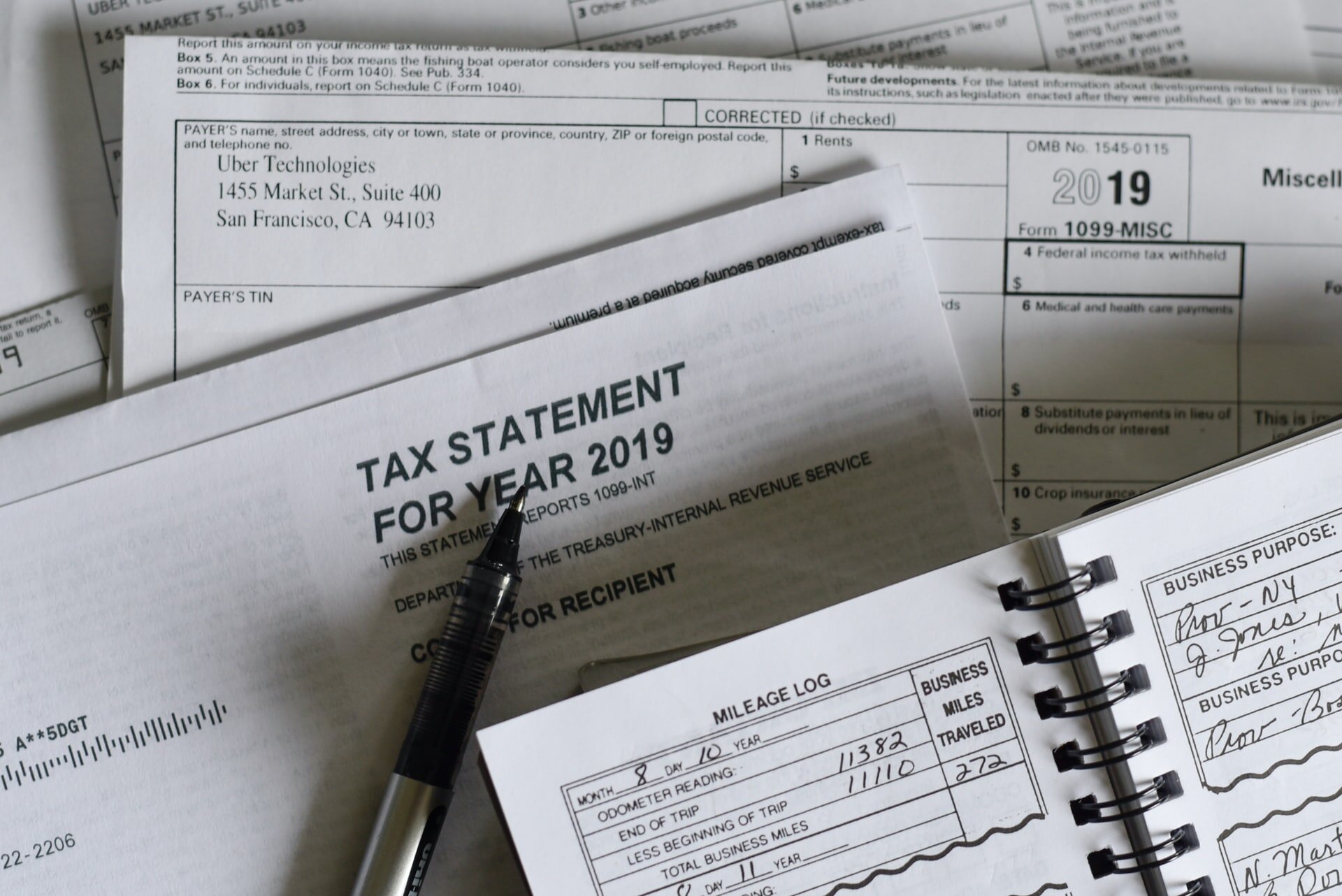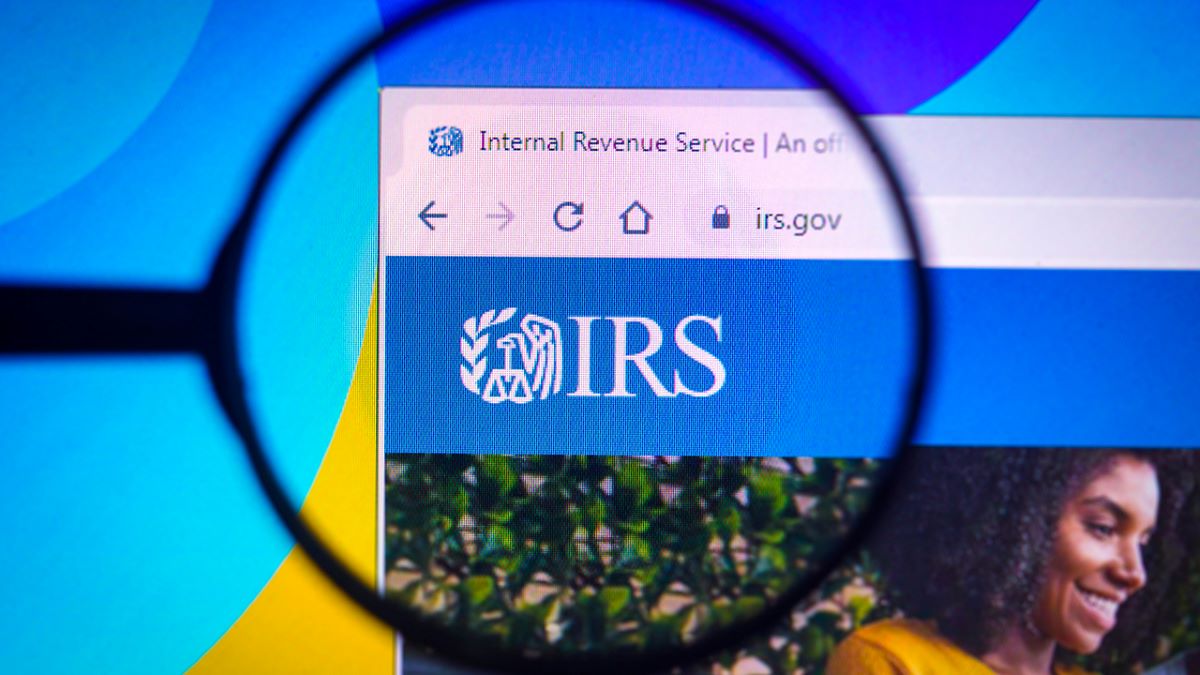

Finance
How To Beat The IRS
Published: October 31, 2023
Learn how to conquer your financial challenges and outsmart the IRS with our expert tips and strategies. Boost your financial know-how today!
(Many of the links in this article redirect to a specific reviewed product. Your purchase of these products through affiliate links helps to generate commission for LiveWell, at no extra cost. Learn more)
Table of Contents
Introduction
Welcome to “How To Beat The IRS,” where we will explore smart strategies and insights to help you navigate the complex world of taxes and avoid unnecessary financial burdens. Dealing with the Internal Revenue Service (IRS) can be intimidating, but with the right knowledge and preparation, you can position yourself to minimize your tax liability and maximize your financial well-being.
The IRS is responsible for collecting taxes and enforcing tax laws in the United States. It has the power to audit taxpayers, impose penalties for non-compliance, and initiate legal actions to collect unpaid taxes. While the IRS’s role is vital for funding government programs and maintaining the economy, it’s in your best interest to understand the tax system and utilize legal strategies to pay only what you owe.
In this article, we will cover various aspects of dealing with the IRS, including taking advantage of legal tax deductions, maintaining accurate records, filing tax returns on time, avoiding tax audits, responding to IRS notices, working with tax professionals, leveraging tax credits and exemptions, and managing tax debt. By implementing these strategies, you’ll gain confidence in your ability to handle your taxes and stay on the right side of the IRS.
Understanding the IRS and the tax system is the first step towards taking control of your financial future. With the tips and insights provided in this article, you’ll be equipped to navigate the maze of tax regulations and make informed decisions that can positively impact your financial situation.
It’s important to note that while the information in this article is designed to provide general guidance, every taxpayer’s situation is unique. It’s always recommended to consult with a qualified tax professional or accountant who can tailor their advice to your specific circumstances.
Now, let’s dive into the strategies that will help you beat the IRS and achieve financial success!
Understanding the IRS
In order to effectively navigate the complexities of the U.S. tax system, it is important to have a basic understanding of the Internal Revenue Service (IRS). The IRS is a government agency responsible for enforcing tax laws and collecting federal taxes. It operates under the authority of the Department of the Treasury and plays a crucial role in funding government programs and services.
The IRS is responsible for processing tax returns, conducting audits, and ensuring that taxpayers comply with their tax obligations. This includes collecting income taxes, employment taxes, excise taxes, and other types of federal taxes. The agency has broad authority to enforce tax laws and can impose penalties, interest charges, and even pursue legal action against individuals or businesses who fail to meet their tax obligations.
One of the primary functions of the IRS is to process tax returns and issue refunds to eligible taxpayers. Taxpayers are required to file their tax returns by the annual deadline, which is typically in mid-April. The IRS uses these returns to determine the amount of tax owed or the refund owed to the taxpayer. It is important to note that accurately reporting income, deductions, and credits on your tax return is crucial to avoiding potential issues with the IRS.
In addition to processing tax returns, the IRS also conducts audits to ensure compliance with tax laws. An audit is a review of an individual or business’s financial information, records, and documentation to verify the accuracy of reported income, deductions, and other tax-related information. While the prospect of an audit can be intimidating, it is important to remember that the majority of tax returns are not audited. However, it is still important to maintain accurate records and documentation to support your tax filings in case of an audit.
Understanding the IRS’s role and authority is essential for navigating the tax landscape effectively. By familiarizing yourself with the IRS’s processes and procedures, you can take proactive steps to comply with tax laws, minimize your tax liability, and avoid unnecessary issues with the IRS.
Finding Legal Tax Deductions
When it comes to taxes, finding legal deductions can significantly reduce your taxable income and ultimately lower your tax bill. A tax deduction is an expense that you can subtract from your taxable income, reducing the amount of income that is subject to tax. By identifying and leveraging available deductions, you can ensure that you are not paying more taxes than necessary.
There are numerous tax deductions available depending on your specific situation. Common deductions include:
- Mortgage interest: If you own a home and have a mortgage, you may be eligible to deduct the interest paid on your mortgage loan.
- Charitable contributions: Donations made to qualifying charitable organizations may be deductible, allowing you to reduce your taxable income while supporting causes you care about.
- State and local taxes: Depending on where you live, you may be able to deduct state income taxes or sales taxes, as well as property taxes paid on your home.
- Medical expenses: Qualified medical expenses, such as health insurance premiums, unreimbursed medical costs, and long-term care expenses, may be deductible if they exceed a certain percentage of your adjusted gross income (AGI).
- Educational expenses: If you or your dependent is pursuing higher education, you may be able to deduct qualified education expenses, such as tuition, fees, and student loan interest.
- Self-employed deductions: If you are self-employed, you may be eligible for deductions such as business expenses, health insurance premiums, and contributions to retirement accounts.
It’s important to note that tax laws and deductions can change from year to year. To ensure you are taking advantage of all available deductions, stay informed about current tax regulations, consult with a tax professional, and keep detailed records of your deductible expenses.
When claiming deductions, it’s crucial to maintain accurate records and documentation. Keep receipts, invoices, and other relevant documents to substantiate your deductions in case of an audit. Additionally, be aware of any limitations or restrictions on deductions, as some deductions may have income thresholds or other requirements that must be met.
Make it a priority to understand and maximize your eligible deductions. By doing so, you can reduce your taxable income and potentially save a significant amount of money on your tax bill.
Keeping Accurate Records
Maintaining accurate and organized records is essential when it comes to managing your taxes effectively and avoiding potential issues with the IRS. Keeping detailed records helps ensure that you have the necessary documentation to support your tax deductions, credits, and income, should you ever be audited or need to provide evidence of your financial activities.
Here are some important steps to follow to keep accurate records:
- Track all income and expenses: Keep a record of all sources of income, including wages, self-employment income, rental income, and investment income. Likewise, track all expenses related to your personal and business activities, such as receipts for business-related purchases, invoices for deductible expenses, and documentation of qualified deductions.
- Separate personal and business expenses: If you run a business, it’s crucial to separate your personal and business expenses. Maintain separate bank accounts, credit cards, and financial records for your business to streamline your accounting and ensure accurate reporting.
- Retain necessary documentation: Keep copies of all relevant tax documents, such as W-2s, 1099s, mortgage interest statements, and investment statements. Additionally, retain receipts, invoices, and contracts to support your deductions and credits. Maintaining these documents for at least three to seven years is advisable in case of an audit.
- Use technology to your advantage: With the advancements in technology, it is easier than ever to maintain accurate records. Utilize accounting software, expense tracking apps, and online banking tools to streamline your record-keeping process and ensure accuracy.
- Seek professional assistance: If you find record-keeping challenging or time-consuming, consider hiring a professional bookkeeper or accountant to help. They can provide guidance on proper accounting practices and assist in preparing your financial records for tax purposes.
Keeping accurate records not only helps you remain compliant with tax laws but also allows you to maximize your deductions and credits. By having a complete and organized record of your financial activities, you can confidently report your income, claim deductions, and avoid triggering red flags that may result in an audit.
Remember, the burden of proof rests with the taxpayer, so it’s essential to keep accurate records to substantiate your tax claims. By making record-keeping a priority, you can navigate tax season with ease and ensure that you are fully prepared if the IRS ever requires documentation of your financial affairs.
Filing Tax Returns on Time
Filing your tax returns on time is crucial to avoid potential penalties and interest charges imposed by the IRS. It is an important responsibility for every taxpayer, and failure to meet the deadline can result in unnecessary financial burdens and increased scrutiny from the IRS.
The annual deadline for filing tax returns in the United States is typically April 15th. However, the exact date may vary depending on weekends, holidays, and certain circumstances. It’s important to be aware of the deadline for each tax year and plan accordingly to ensure you meet the filing deadline.
Here are some key steps to help you file your tax returns on time:
- Gather all necessary documents: Collect all relevant tax documents, including W-2s, 1099s, investment statements, and any other documents required to accurately report your income and deductions. Keeping your financial records organized throughout the year can streamline this process.
- Choose the right filing method: Determine whether you will file your tax return electronically or by mail. E-filing is the most popular and efficient method, allowing for faster processing and confirmation of receipt. If you choose to file by mail, ensure that you have the correct address and sufficient time for the return to reach the IRS.
- Complete all necessary forms: Determine which tax forms you need to complete based on your financial situation. The most common form is the Form 1040 for individuals, but you may have additional schedules or forms depending on your income sources and deductions.
- Double-check for accuracy: Before submitting your tax return, carefully review all the information you have entered. Mistakes or omissions can delay the processing of your return or trigger an audit. Utilize software or online tools to perform a final review and ensure accuracy.
- Submit your payment (if applicable): If you owe taxes, make sure to submit your payment along with your tax return. The IRS offers various payment options, including credit card, check, or electronic funds transfer. Be mindful of any payment deadlines to avoid additional penalties.
Filing your tax returns on time is crucial to avoid the failure-to-file penalty, which is usually a percentage of the taxes owed for each month or part of the month that the return is late. Additionally, late filers may be subject to interest charges on the unpaid taxes.
If you are unable to file your tax return by the deadline, it’s essential to request an extension. An extension gives you additional time to file your return, but it does not extend the time to pay any taxes owed. Filing an extension can help prevent late filing penalties, but interest may still accrue on unpaid balances.
Overall, meeting tax return deadlines is vital to stay in compliance with tax laws and avoid unnecessary penalties and interest charges. Being proactive, organized, and well-prepared will make the tax filing process smoother and increase your chances of timely compliance with IRS regulations.
Avoiding Tax Audits
While the prospect of a tax audit can be intimidating, there are steps you can take to reduce your chances of being audited by the IRS. While you cannot completely eliminate the possibility of an audit, being proactive and following best practices can minimize the likelihood of triggering an audit and help you navigate the process if it does occur.
Here are some effective strategies to help you avoid tax audits:
- Ensure accurate and consistent reporting: Accurate and consistent reporting of your income, deductions, and credits is essential to avoid triggering red flags with the IRS. Double-check your tax return for errors and ensure that all information is fully supported by documentation.
- Report all income: It’s important to report all sources of income, including wages, self-employment income, rental income, and investment income. The IRS receives copies of your income-related documents, such as W-2s and 1099s, so make sure your reported income matches these documents.
- Avoid excessive deductions: While claiming legitimate deductions is your right, excessive deductions relative to your income can increase the likelihood of an audit. Ensure that your deductions are reasonable and well-documented to avoid any suspicion of tax avoidance.
- Be cautious with business expenses: For self-employed individuals, it’s crucial to be mindful of business expenses. Maintain accurate records and ensure that expenses claimed are directly related to your trade or business and necessary for its operation.
- Don’t forget to report foreign income: If you have foreign assets or income, it’s essential to report them. The IRS has increased scrutiny on taxpayers with offshore accounts, so ensure compliance with reporting requirements to avoid potential penalties and audits.
- Be consistent with prior years: Consistency in reporting from year to year can help reduce audit risk. Significant changes or inconsistencies between years may raise eyebrows and prompt the IRS to take a closer look at your return.
- Keep accurate and organized records: Maintaining detailed records, such as receipts, invoices, and financial statements, is crucial. These records not only support your deductions and credits but also provide evidence of your financial activities in case of an audit.
- Consider professional guidance: Consulting with a qualified tax professional can help ensure accuracy and compliance with tax laws. They can help navigate complex tax regulations, provide guidance on potential red flags, and ensure that your tax return is prepared correctly.
It’s important to note that although audits can be unsettling, they are not always indicative of wrongdoing. Sometimes, audits occur randomly or due to specific issues identified by the IRS. If you are selected for an audit, cooperate fully, respond to the IRS’s requests promptly, and seek professional advice if necessary.
By following these strategies and being proactive in your tax reporting, you can reduce the chances of a tax audit and maintain peace of mind throughout the tax season.
Responding to IRS Notices
Receiving a notice from the Internal Revenue Service (IRS) can be unsettling, but it’s important not to panic. The IRS sends notices to taxpayers for various reasons, such as requesting additional information, notifying of changes to your return, or initiating an audit. When you receive a notice, it’s essential to carefully read and understand its contents and take appropriate action in a timely manner.
Here are some steps to help you respond effectively to IRS notices:
- Read the notice thoroughly: Take the time to read the notice carefully and make sure you understand the reason for receiving it. The notice will provide important information about what the IRS needs from you or the issue they want to address.
- Review your records: Look through your records, including tax returns, supporting documents, and any relevant correspondence with the IRS. Compare the information in the notice to your records to identify any discrepancies or missing information.
- Respond within the specified timeframe: IRS notices typically have deadlines for responding. It’s crucial to adhere to these deadlines to avoid further complications or potential penalties. If you need more time to gather the required information, consider requesting an extension in writing.
- Follow instructions and provide requested information: The notice will outline the specific steps you need to take and the information or documents the IRS requires. Ensure that you comply with these instructions precisely and provide the requested information or documents as requested.
- Seek professional assistance if necessary: Depending on the complexity of the notice or the issues involved, it may be helpful to consult with a tax professional. They can provide guidance, help you understand your rights and responsibilities, and assist in preparing a response to the IRS.
- Keep copies of all correspondence: Make copies of all your correspondence with the IRS, including your response to the notice and any supporting documentation. This will help you keep track of your communication and provide proof of your actions if needed in the future.
- Follow up if needed: If you have responded to the notice but haven’t received any further communication from the IRS, consider following up to ensure that your response was received and is being processed.
It’s important to remain calm and cooperative throughout the process of responding to IRS notices. Ignoring or delaying your response can lead to further complications, such as penalties, interest charges, or even legal action. Being proactive and addressing the issue promptly will help resolve the matter smoothly and effectively.
If you disagree with the IRS assessment or require additional assistance, you have the right to appeal their decision. Consult with a tax professional who can guide you through the appeals process and advocate on your behalf.
Remember, responding to IRS notices is a normal part of the tax process, and with the right approach and attention to detail, you can effectively address any issues that arise and maintain a positive relationship with the IRS.
Working with a Tax Professional
Navigating the complexities of the U.S. tax system can be overwhelming, which is why working with a tax professional can be immensely beneficial. A tax professional, such as a certified public accountant (CPA) or an enrolled agent (EA), has the expertise and knowledge to help you optimize your tax situation, minimize your tax liability, and ensure compliance with tax laws.
Here are some reasons why working with a tax professional can be advantageous:
- Up-to-date knowledge: Tax laws and regulations are constantly changing. Tax professionals stay informed about the latest updates and changes, ensuring that you receive accurate and up-to-date advice tailored to your unique circumstances.
- Tax planning and strategy: A tax professional can help you develop a comprehensive tax planning strategy to maximize your tax savings. They can analyze your financial situation, explore potential deductions, credits, and exemptions, and provide guidance on how to structure transactions or make financial decisions to minimize your tax liability.
- Accuracy and compliance: Tax professionals have experience in preparing and filing tax returns accurately and efficiently. They can help you avoid errors or omissions that could trigger an audit or result in penalties. By entrusting your tax preparation to a professional, you gain peace of mind knowing that your return is completed with attention to detail and compliance with tax laws.
- Audit representation: In the event of an IRS audit or examination, a tax professional can represent you and act as your advocate. They have the knowledge and experience to navigate the audit process, communicate with the IRS on your behalf, and help you gather the necessary documentation to support your position.
- Time and stress savings: Tax season can be stressful, especially if you have a complex financial situation or multiple income sources. Hiring a tax professional frees up your time, allowing you to focus on other aspects of your life while having the confidence that your taxes are being handled by an expert.
When choosing a tax professional, consider their qualifications, experience, and reputation. Look for individuals who are licensed, have a good track record, and are knowledgeable in the specific areas relevant to your tax situation. It’s also essential to establish clear communication and ensure that you feel comfortable working with them.
Remember, even when working with a tax professional, it’s crucial to stay engaged and informed about your own tax situation. Ask questions, understand the advice given, and provide accurate information to ensure that your tax professional can provide the best guidance tailored to your needs.
Working with a tax professional can bring a level of expertise and peace of mind that can greatly benefit your financial situation. Their guidance can help you navigate the complexities of the tax system, optimize your tax position, and ensure compliance with tax laws, setting you up for long-term success.
Utilizing Tax Credits and Exemptions
When it comes to reducing your tax liability, tax credits and exemptions can be powerful tools. These benefits can directly reduce the amount of taxes you owe, potentially leading to significant savings. Understanding the various credits and exemptions available to you and taking advantage of them can help optimize your tax situation.
Here are some key points to consider when utilizing tax credits and exemptions:
- Tax credits: Tax credits are dollar-for-dollar reductions in your tax liability. They are more valuable than deductions since they directly reduce the amount of tax owed. Popular tax credits include the Child Tax Credit, the Earned Income Tax Credit, the Lifetime Learning Credit, and the Saver’s Credit, among others. Determine which credits you qualify for and ensure that you claim them on your tax return to maximize your tax savings.
- Tax exemptions: Tax exemptions are deductions that reduce your taxable income. They can either be personal exemptions or exemptions for dependents. Each exemption reduces the portion of your income subject to tax. However, it’s important to note that tax exemptions have been phased out at the federal level as of the 2018 tax year.
- Research available credits and exemptions: Stay informed about the credits and exemptions available to you. Research the eligibility criteria, income limits, and documentation requirements for each credit or exemption. This knowledge will help you determine which ones you qualify for and allow you to plan your financial decisions accordingly.
- Keep accurate records: To claim tax credits and exemptions, it is crucial to keep accurate records and supporting documentation. This can include receipts, invoices, and other relevant paperwork. Maintaining organized records throughout the year will streamline the process of claiming these benefits when it’s time to file your tax return.
- Consider the impact of phase-outs: Some tax credits have income limits or phase-outs, meaning they reduce or phase out entirely as your income increases. Understanding these limits can help you strategically plan your finances to maximize your eligibility for credits and exemptions.
- Consult with a tax professional: If you’re unsure about the tax credits and exemptions available to you or how to optimize your tax situation, consider seeking the guidance of a qualified tax professional. They can provide personalized advice based on your circumstances and help ensure that you take full advantage of all available credits and exemptions.
By taking advantage of tax credits and exemptions, you can significantly reduce the amount of tax you owe and increase your overall tax savings. Be proactive in researching and understanding the eligibility requirements, keep accurate records, and consider seeking professional advice to optimize your tax situation and potentially unlock substantial benefits.
Dealing with Tax Debt
Accruing tax debt can be a stressful experience, but it’s important to address it promptly and develop a plan to resolve it. Ignoring tax debt can lead to escalating penalties, interest charges, and potential legal consequences. Here are some steps to help you effectively deal with tax debt:
- Review the debt: Confirm the accuracy of the tax debt by reviewing your tax returns, payment history, and any supporting documentation. Ensure that the amount owed is correct and that there aren’t any errors or discrepancies that need to be addressed.
- Communicate with the IRS: If you are unable to pay your tax debt in full, contact the IRS to discuss your situation. They may be willing to work with you to establish a payment plan or consider other options such as an offer in compromise, which allows you to settle your debt for less than the full amount owed.
- Explore payment options: The IRS offers various payment options to help taxpayers repay their debt. These include installment agreements, where you make monthly payments, and the ability to pay online or by check. Consider which option best suits your financial situation and discuss it with the IRS.
- Consider professional assistance: If your tax debt is significant or if you’re facing complex issues, it may be beneficial to seek the help of a tax professional. They can negotiate on your behalf, provide guidance on the best course of action, and help you navigate the debt resolution process.
- Stay compliant moving forward: It’s crucial to remain current with your future tax obligations to avoid further tax debt. Stay organized, keep accurate records, and consider adjusting your tax withholding or estimated tax payments to ensure you’re meeting your tax obligations.
- Avoid scams: Be cautious of companies or individuals promising to eliminate your tax debt for a large upfront fee. The IRS provides resources and assistance for dealing with tax debt, and it’s important to seek legitimate and trustworthy sources of help.
- Seek professional advice: Every taxpayer’s situation is unique, so it’s important to consult with a qualified tax professional or financial advisor who can provide personalized guidance based on your specific circumstances.
Remember, the IRS is typically willing to work with taxpayers who are proactive and cooperative in addressing their tax debt. Taking action, exploring available options, and maintaining open communication can help you find a resolution and alleviate the burden of tax debt.
Dealing with tax debt may take time and effort, but it’s an important step towards achieving financial stability and peace of mind. By being proactive and seeking the necessary support and guidance, you can successfully navigate the process and regain control of your financial situation.
Conclusion
Navigating the world of taxes and dealing with the IRS can be challenging, but by implementing the strategies outlined in this article, you can position yourself for financial success and minimize unnecessary stress. Understanding the IRS and the tax system, finding legal tax deductions, keeping accurate records, filing tax returns on time, avoiding tax audits, responding to IRS notices, working with a tax professional, utilizing tax credits and exemptions, and effectively managing tax debt are key components of a successful tax strategy.
By staying informed about current tax laws, taking advantage of available deductions and credits, and maintaining accurate records, you can optimize your tax situation and reduce your tax liability. Proactively responding to IRS notices, working with a tax professional, and developing a plan for dealing with tax debt can help you navigate potential challenges and ensure compliance with tax laws.
Remember, every taxpayer’s situation is unique, and it’s important to consult with a qualified tax professional or financial advisor who can provide personalized advice tailored to your specific circumstances. They can help you understand the intricacies of the tax system, navigate potential pitfalls, and make informed financial decisions that align with your long-term goals.
By taking control of your tax situation and implementing smart strategies, you can beat the IRS and achieve financial peace of mind. Stay proactive, stay informed, and stay organized to maximize your tax savings and ensure compliance with tax laws year after year.














